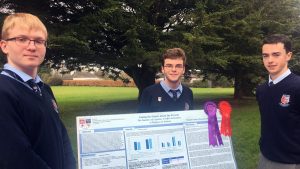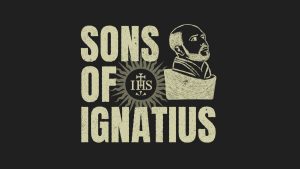Frontiers of fear

Fr John K. Guiney, Director of the Irish Jesuit Mission Office, reflects on a recent meeting of the European Social Delegates which explored Jesuit work with migrants at borders/frontiers around the world. Exploring Jesuit spirituality at the frontiers was the theme of meetings of different groups working with migrants. These meetings took place on both sides of the Moroccan border with the Spanish enclave of Melilla in the corner of NE Morocco.
The Social Delegates’ meeting took place in Nador, a city in African Morocco, separated by two high fences from the Spanish enclave of Melilla. Social delegates of Europe also included Jean-Marie Carrière SJ the Regional Director of JRS Europe and the Social Delegate for Africa, Minani Rigobert SJ. This was in continuity of a greater meeting of Jesuits and partners dealing with migration issues around the world. For example, Fr Moreno SJ who is in charge of Jesuit Migration Services in Latin and Central America was also present at this series of meetings . The rich exchange about frontier spirituality – what it is like to be working on frontiers, especially, on borders which are places either of free movement or restricted movement and great suffering was indeed a huge learnin g experience for me and for all.
On the border between Nador and Melilla there is a 10-metre fence supported by EU, and policed with the help of EU money, in order to keep people from north or sub-Saharan Africa from going into Europe. Anyone who scales the fence on the Moroccan side of the border will find, 50 metres away, another 10-metre fence on the Spanish side. You scale these at the risk of your life, or of broken bones if the police catch you. I flew into Melilla, then walked across the border – into Africa in ten minutes. I presented myself as a tourist, and my occupation at home as teacher – both are safe answers. Never say you are going to a meeting or concerned about the migration issue- this is a hot issue on the Moroccan border and outsiders inquiring about these issues are suspect. We went there to be in solidairty with the small Jesuit team and to learn from their expereince.
The Moroccan government will not allow migrants into the city of Nador, so they hide in the forests, in terrible conditions. Two Jesuits, one Spanish, one French, with a team of sisters and lay workers, supply them with tents, medical care, hospitalisation. The Jesuits do not go into the encampments but they meet them at appointed places in the forest and drive the sick to a hospital in Nador where paradoxically they are given treatment like any Moroccan.
In this corner of Morocco one encounters smuggling and trafficking. Smugglers are people who benefit from the lucrative trade of taking people who can afford to pay for transport to Europe- so often in non sea worthy boats. Trafficking is another more devious trade and treats people like slaves and the merchandise is women. The Nigerian mafia, with its cells all over Europe, sends young women as slaves wherever they are wanted – mostly into the European sex industry. They are bought from their villages in Nigeria and live in fear. After crossing the desert to Nador they await an opportunity to be transported to Europe by their mafia masters. There they are raped and abused and are so fearful they would never run away. Many have forced abortions.
What was new to me was the trafficking of women against their will, bought and sold as merchandise on order. You have lost your passport, and have no rights, no papers, no destination, living in a state of fear. Nigerian women will have gone through the Voodoo ritual, where they are photographed, a lock of their hair is cut off and kept by the master, and they believe they will be cursed for life if they break the conditions of the spell. Even women who want to move on from their slavery will say: I will only feel free when I get back my photograph and my hair. The photo is a stealing of your spirit. The hair is a way of keeping someone under your power. So these women are not just physically, but spiritually imprisoned. It made me realise the power of spirits and traditional religion. This voodoo system can hold people in a spiritual prison for years. This internationa mafia of traffickers need an international response by Government and security agencies to dismantle it.
In our statement after our meeting – see below – we emphasised the need to humanise border situations and alleviate suffering there. We need to advocate sound migration policies and work on our own governments to be prepared for greater flows of migrants. They will be displaced not just by economic and war factors, but for ecological reasons. More and more young people are impoverished because of global warming and longer periods of drought. Weather is moving towards extremes, between drought and torrential rain. The deserts of North Africa are spreading towards sub-Saharan Africa. In Kenya the dry season lasts longer, the storms are more violent. This affects food production and disturbs the economic order. I met a young West African, who had three times attempted to cross to Europe and on the third attempt got to Malta, hoping to stay. I asked him why he kept trying after so much suffering. “I would prefer dying while trying to live, rather than just dying of hunger in my village.”
Shame is an important factor. I met men who had made the journey to Nador, had suffered in many ways, and regretted setting out; but they would not go back. They had been given money by their families in order to make a better life in Europe, and to go back would be such an admission of failure, they would rather die. There are many other factors triggering the flow of migrants: despotic government in Eritrea, civil war in South Sudan, corruption in rich Nigeria, bad governance in many lands. I had imagined all migrants were poor and unemployed. Not so; many of those I met were teachers or white-collar employees: they had a job but, in a corrupt system, had not been paid, sometimes for two years. As in the Great Famine in Ireland, those who choose to emigrate are mostly the strong, healthy, enterprising and ambitious, leaving the weaker ones at home.
Our response needs to be fair and proportionate. It is not enough to urge European governments to open their doors wider. African governments must be pressured to care for their own people through good leadership and governance. International aid should be used to boost civil rights, starting with the right to live in peace in your own country.
What can Jesuits do? First, extend an effective solidarity with those who are working at the coalface, like the team in the Nador forests, of Jesuits, sisters, lay volunteers and diocesan clergy. Second, learn from other SJ provinces how best to respond to needs – the Spanish SJs open unused buildings to migrants who are awaiting repatriation; and they help migrants with problems of language and official forms. Third, use our influence to lobby our own and other governments to work for a transparent, humane migration policy. The vicious trafficking of women and girls needs to be tackled at root by taking on the mafia in Nigeria and other European Mafias who profit from the plight of the poorest.
Our final statement brings these themes together:
Over the past three months, it is estimated that two thousand people have died by drowning in the Mediterranean Sea whilst trying to reach Europe. Dozens more suffer major injuries in their attempts to cross the border between the Moroccan town of Nador and the Spanish enclave of Melilla. Many of the victims include unaccompanied minors. It was this desperate situation that led the Jesuit social delegates to choose Nador for their annual meeting. In light of what they witnessed in Nador, they have issued the following statement:-
We are Jesuits and partners from all over Europe involved in social justice and advocacy. We met here precisely because we are called to go to the frontiers, especially where the suffering of people is most evident. Borders between Northern Africa and Southern Europe are frontiers of suffering, violence and human rights violations. The heavily armed security fence between Nador and Melilla is a tragic by-product of “Fortress Europe”. We are concerned about the lawlessness at this crossing point, evidenced by the increased use of physical force by security personnel.
Alongside the suffering, we have witnessed compassion and solidarity of men and women of all faiths and nationalities united by their commitment to support these young African migrants. We have been particularly moved by the care given to female victims trapped by human trafficking.
As a result of our meeting we:
- Renew our commitment to accompany and serve our sisters and brothers in their suffering.
- Continue to advocate for just migration and asylum policies in the EU promoting the dignity of each person, including victims of human trafficking.
- Encourage further research into the root causes of migration.
- Promote global responsibility and action as the only viable response to this humanitarian tragedy.
In addition to our present engagement with migrants within Europe, we therefore express our desire to increase collaboration with Jesuits in Africa in responding to challenges posed by borders.
Photo: Acad Ronin / Wikimedia (CC)












